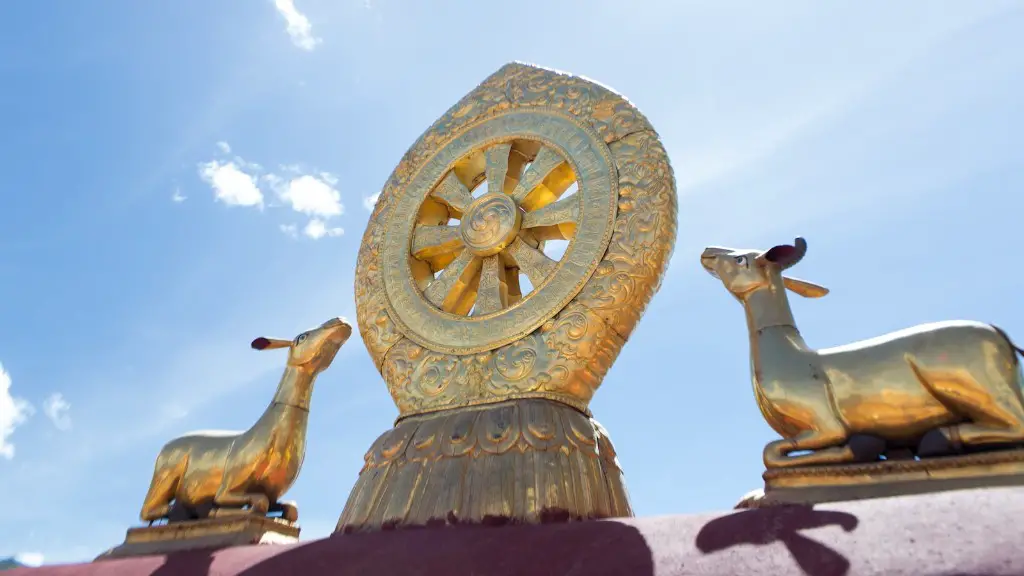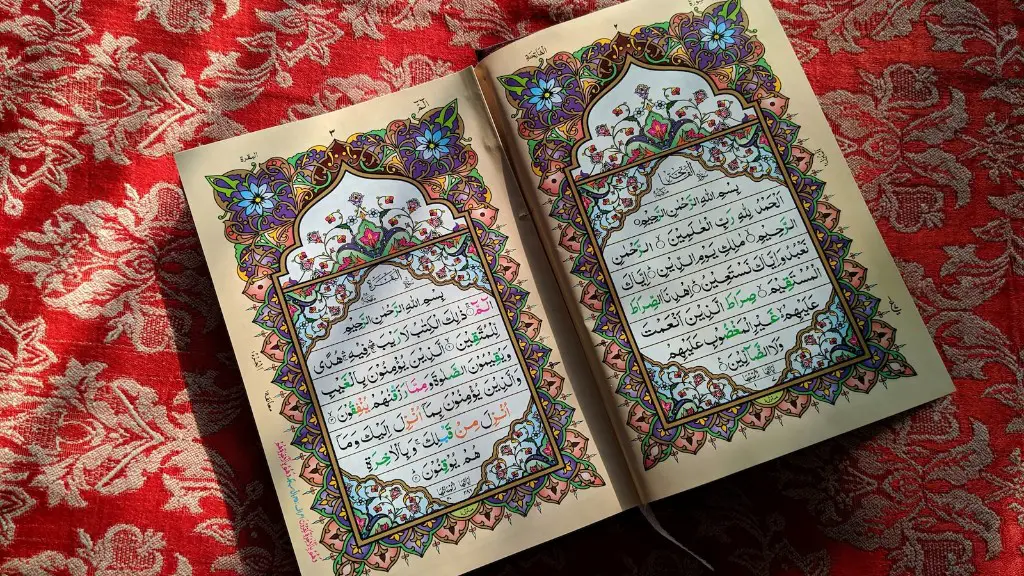In Buddhism, the self is often seen as an illusion. The belief is that we create our own suffering by attachment to the things we think we need in order to be happy. This includes the things we own, our relationships, our bodies, and even our own thoughts and feelings. The goal of Buddhism is to let go of attachment to the self and find freedom from suffering.
The actual answer to this question is quite complex and nuanced, but in general, the Buddhist concept of self is that it is an illusion; that is, there is no permanent, unchanging self or soul that exists independently from the rest of the universe. This doesn’t mean that individuals don’t exist at all, but rather that they are constantly changing and interdependent on other factors.
What is the Buddhist concept of no self?
The Buddhist view of self is that there is no unified, essential self. The self is nothing more than a bundle of states and properties, and we tend to project a fiction of an enduring self onto this bundle. The doctrine of no-self (anatta) is the rejection of the unified essential self.
The self is not a fixed entity but is instead constantly changing and impermanent. This is because the self is composed of the five aggregates, which are all in a state of flux. The physical form aggregate is always changing as the body ages, grows, and decays. The sensation aggregate is always changing as we experience different sensations. The conceptualization aggregate is always changing as we form new concepts. The dispositions to act aggregate is always changing as we develop new habits and preferences. And finally, the consciousness aggregate is always changing as we have new thoughts and experiences.
What does Buddhism say about self worth
When we have unlimited courage, wisdom and compassion, we can truly believe in ourselves.
Self-love is one of the most important things you can do for your overall health and happiness. Love is a powerful, positive energy that helps to maintain a healthy balance between mind, body and spirit. Recognizing and nurturing self-love is essential in order to be able to recognize and receive love from others.
How does the ego or self arise in the Buddhist view?
Buddhism teaches that the cause of our suffering is clinging to what we believe to be our “self” or “ego.” When we feel unsafe or uncertain, our habitual defenses arise, and we tend to cling even more defensively to our ego in an attempt to gain ground in groundlessness. The Buddha taught that the way to end our suffering is to let go of our attachment to our ego. This doesn’t mean that we have to get rid of our ego altogether, but we need to learn to not let it control us. We can do this by practicing mindfulness, which will help us to become more aware of our thoughts and emotions so that we can see them for what they are: just thoughts and emotions. Once we see that our thoughts and emotions are not who we are, we can start to let them go, and we will be able to find true peace and happiness.
The Four Noble Truths are the most basic and essential teachings of the Buddha. They are the truth of suffering, the truth of the cause of suffering, the truth of the end of suffering, and the truth of the path that leads to the end of suffering. More simply put, suffering exists; it has a cause; it has an end; and it has a cause to bring about its end.
Why is selflessness important in Buddhism?
The Buddhist concept of “selflessness” is not a recommendation for the dissolution of ego, but rather an invitation to dispel the artificial compactness of “I”. In other words, it is a call to see beyond the limitations of the ego, to a more spacious and interconnected way of being.
The Five Precepts are an important foundation for living a meaningful and moral life in Buddhism. They are:
1. Refrain from taking life – not killing any living being.
2. Refrain from taking what is not given – not stealing from anyone.
3. Refrain from the misuse of the senses – not having too much sensual pleasure.
4. Refrain from wrong speech – speaking truthfully and not causing harm with our words.
5. Refrain from intoxicants that cloud the mind – not taking drugs or alcohol that would impair our judgement.
Living in accordance with the Five Precepts helps us to be more aware of our actions and their consequences, and to act in ways that are beneficial to ourselves and others.
What is the main message of Buddhism
Buddhism teaches that human life is a cycle of suffering and rebirth. However, it is possible to achieve a state of enlightenment (nirvana) that allows one to escape this cycle. Siddhartha Gautama was the first person to reach this state of enlightenment and is known as the Buddha.
The four noble truths are the foundational doctrine of early Buddhism. They state that existence is suffering, that suffering has a cause, that there is a cessation of suffering, and that there is a path to the cessation of suffering. These truths remain central to all Buddhism, and provide a framework for understanding the human condition and the path to liberation from suffering.
What are the 7 Buddhist virtues?
The Pāramitās are a set of virtues that are widely promoted in Buddhism. They are often seen as the core values that one should practice in order to live a good life. The Pāramitās are: Dāna (generosity), Sīla (proper conduct), Nekkhamma (renunciation), Paññā (wisdom), Viriya (energy), Khanti (patience), Sacca (honesty), Adhiṭṭhāna (determination), Mettā (Good-Will), Upekkhā (equanimity).
The daily lives of Buddhists monks revolves around a strict schedule that includes meditation, studying scriptures, and taking part in ceremonies. Buddhist shrines, monasteries (where monks live), Gompas, and Stupas are found all over the world.
Is emptiness the same as no self
No self also means emptiness, a technical term in Buddhism which means the absence of a separate self. We are of the nature of no self, but that does not mean that we are not here. It does not mean that nothing exists.
The precepts are part of the Buddhist’s path to enlightenment and are meant to develop mind and character. They are commitments to abstain from killing living beings, stealing, sexual misconduct, lying and intoxication.
Can Buddhism boost self-confidence?
If you live your life with a genuine concern for the well-being of others, you will feel better about yourself, and in turn, feel more confident. This is according to His Holiness the 14th Dalai Lama, Tenzin Gyatso, the spiritual leader of Tibetan Buddhism. He emphasizes the importance of caring for others and living in a way that benefits everyone.
The Buddha advised monks to avoid eating 10 kinds of meat for self-respect and protection: humans, elephants, horses, dogs, snakes, lions, tigers, boars and hyenas.
What are the four Buddhist virtues
The Four Immeasurables, or the Four Brahmaviharas, are four virtues that are common to all Buddhist traditions. They are loving-kindness, compassion, empathetic joy, and equanimity. These virtues represent the ideal way to relate to others, and are important to practice in order to attain enlightenment.
The Eight Precepts are designed to help individuals live a more moral and spiritual life. The first four precepts focus on abstaining from negative actions, such as killing, stealing, and lying. The last four precepts focus on promoting positive actions, such as helping others and showing compassion.
Final Words
The self in Buddhism is often described as being empty, or void of inherent existence. This means that the self is not a permanent, unchanging entity, but rather is ever-changing and impermanent. The self is also said to be interdependent, meaning that it is not independent or self-sufficient, but rather is reliant on other beings and things for its existence.
The self in Buddhism is a complex and multi-layered concept. At its most basic, the self is the individual soul or essence that is reborn into different bodies throughout the cycle of samsara. This soul is said to be pure and perfect, but it is tainted by the ignorance and attachments that arise in the mind. The goal of Buddhist practice is to purify the mind and release the soul from the cycle of rebirth. In this way, the self is seen as an eternal and unchanging entity, but one that is caught in the web of suffering due to our own actions and desires.



